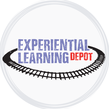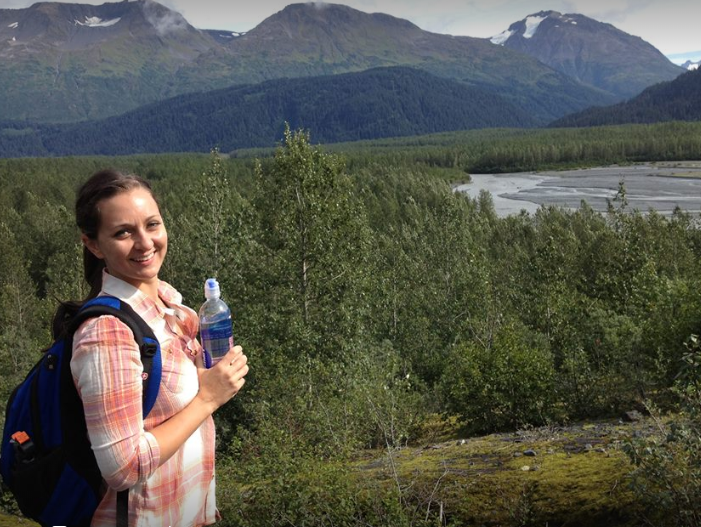|
Experiential learning resources for the innovative educator
This past week my family headed southwest to start our goal of hitting all of the U.S. National Parks before our kids turn 18. It's a lofty goal, I'm discovering. There are many National Parks. But from the viewpoint of an ex-field ecologist and experiential educator, the benefits of providing these opportunities to my children (and students) far outweigh the costs. Teachers and administrators: Even if your school doesn't have a travel program, or you can't afford to take your kids abroad, you can still travel. Keep it simple and do your research. Put together a proposal for a travel program using the benefits I present here today, and present it to your school board. You can also look back at past posts on travel to fortify your proposal. Homeschool parents: Consider cheaper options such as arranging exchanges between homeschool families or partaking in WWOOF experiences as a family. WWOOF is free lodging (and often food) for a few hours of your help on an organic farm everyday. Stay-tuned for a post on educational travel on the cheap. Seasoned homeschool travelers, feel free to send me suggestions to post! Never will my children or my students learn more by sitting in a classroom scrolling through a textbook than they would experiencing the world firsthand. There is so much to gain by seeing the world from a different, unfamiliar perspective. It's not always easy, traveling with kids, but nothing that is easy is worth doing, right? Isn't that a saying? They will thank you later. Travel is educational by nature, so whether you’re taking students on a trip, worldschooling, traveling for fun with family, or even traveling solo, the experience is life-changing. Check out the reasons that I make travel a priority in my family life and school life. Six Reasons To Include Educational Travel in Your Curriculum1. Relationship Building: My students walk away from school organized trips with the most unexpected lifelong relationships with peers, teachers, mentors, locals, and more. My family just returned from Zion, which was an opportunity for my children to spend some badly needed time with their dad, strengthen their relationship with each other, and spend their time with me in a unique and interesting capacity, one where I wasn't frantically scrambling them out the door to be on time for a commitment. The bonding that occurs and the friendships that develop in travel cannot compare to many other life experiences. Human connection is vital for children. 2. Develop a Healthy Self-Concept: Another benefit to traveling as a young person is developing a healthy self-concept; gaining confidence, finding interests, knowing what you want for yourself, discovering ones values and priorities, testing oneself, observing strengths and weaknesses, and more. This is especially important for tweens and teens. I spent much of my 20's traveling the globe as a field ecologist. Frankely, that was the most difficult time of my life. I was broke, lonely, and I put my health and life at risk everyday. But looking back I realize that those experiences in my young life paved the way for who I am today. I learned to live minimally, I discovered what I wanted for myself, I gained a confidence that I never knew I had in me, I learned to appreciate the simple things, I took pride in my successes. That last one is a difficult thing for a Minnesotan to do! Traveling builds character in a way that few other life experiences could. 3. Content Knowledge: With travel comes gaining content knowledge through experience rather than from a desk or out of a textbook. Heading to a new environment out of one’s comfort zone leads to wonder, observation, inquiry, exploration and holds the most relevant experts and resources. Since being in Zion, my little ones have asked me a million questions. I often find myself and my husband saying “I wonder...” How did Zion form? Why are the rocks red? Why is it dry? What drives climate in Zion? What species adaptations have emerged to survive the climate? What is the region’s human history? The list goes on and on. Any number of these questions could be turned into an inquiry investigation or a driving question for a project-based learning experience. Check out these resources for student-directed learning experiences. They are all open-ended for learners to follow their interests and inquiries before, during, or after travel. Project-Based Learning Tool Kit Problem-Based Learning Tool Kit Community Action Projects Scientific Inquiry Tool Kit (also available as a bundle) 4. Mental/Physical Health: There are so many grim statistics out there about the health of our children. Anxiety and depression is at an all time high among teenagers. Regular outdoor time is a luxury for many schools. Some schools have taken recess away from children entirely. I have seen some really cool and creative ways that educators are addressing physical and mental health, but let's face it. As long as the bulk of a child's day is sitting at a desk or cooped up in an indoor work space, they are not getting the physical and mental outlet that they need. An hour of gym class is simply not enough. Travel gets kids outside. It removes them from social and academic pressures. If you go to the right place, they can disconnect from the social media drama that suffocates them at home. They move their bodies! Whether they are in New York City or on the cliffs of Zion National Park, they have to move around to get from point A to point B. Travel is an all-inclusive mental and physical health overhaul. Take advantage, even if it means taking your own child on a weekend camping trip to a local state park. It doesn't have to be extravagant to make an impact. 5. 21st-Century Skill Building: I have done an entire post on how travel helps learners develop essential 21st-century skills, so I won't get into it too much here. It's pretty simple. Removing children from their comfort zones puts them in a position to adapt. When traveling with a group they develop communication and collaboration skills. They learn how to work as a team. Children think critically and creatively when they face inevitable obstacles. They learn to be flexible. The list goes on. When children are in an environment, especially one in which their learning experiences are self-led, they develop those skills naturally. It's not something you need to plan. It just happens. 6. Expand Their Worldview: In travel children are exposed to new cultures, different ways of doing things, a variety of perspectives and priorities. They develop tolerance and empathy for people from all walks of life. They observe that there is a world outside of their own. This is especially important for teenagers. Children are self-involved by nature. But exposure to the world will not only help them expand their world view, but define it. My travel experiences have absolutely shaped my worldview. This is really important. Ignorance might be bliss, but it is irresponsible. That is blunt, and I apologize if that offends anyone. But above a report card filled with A's, I want my students and own children to be responsible citizens, empathetic and compassionate people, hard-working, and passionate lifelong learners. What do you want for your children? Of course traveling is not the only way to achieve all of these things. It's one way, but a very powerful way. Take a hard look at how you are providing your students and children with opportunities to expand their worldview, develop a healthy self-concept, gain content knowledge through child-led learning experiences, build deep and meaningful relationships with solid people, and grow up to be healthy, creative and skilled individuals. It's a lot. It's a huge job, I know. But it's worth it.
Follow Experiential Learning Depot on Pinterest, Instagram and LinkedIn. Observe. Question. Explore. Share.
0 Comments
Your comment will be posted after it is approved.
Leave a Reply. |
Blog IntentTo provide innovative educational resources for educators, parents, and students, that go beyond lecture and worksheets. AuthorSara Segar, experiential life-science educator and advisor, curriculum writer, and mother of two. Categories
All
|








 RSS Feed
RSS Feed